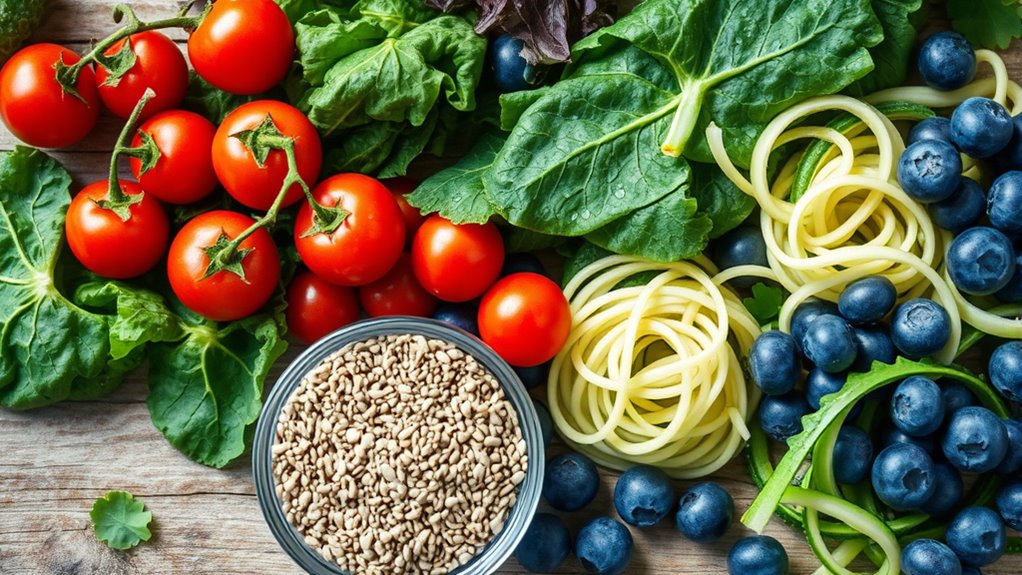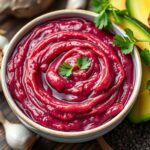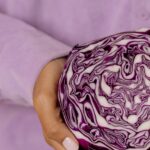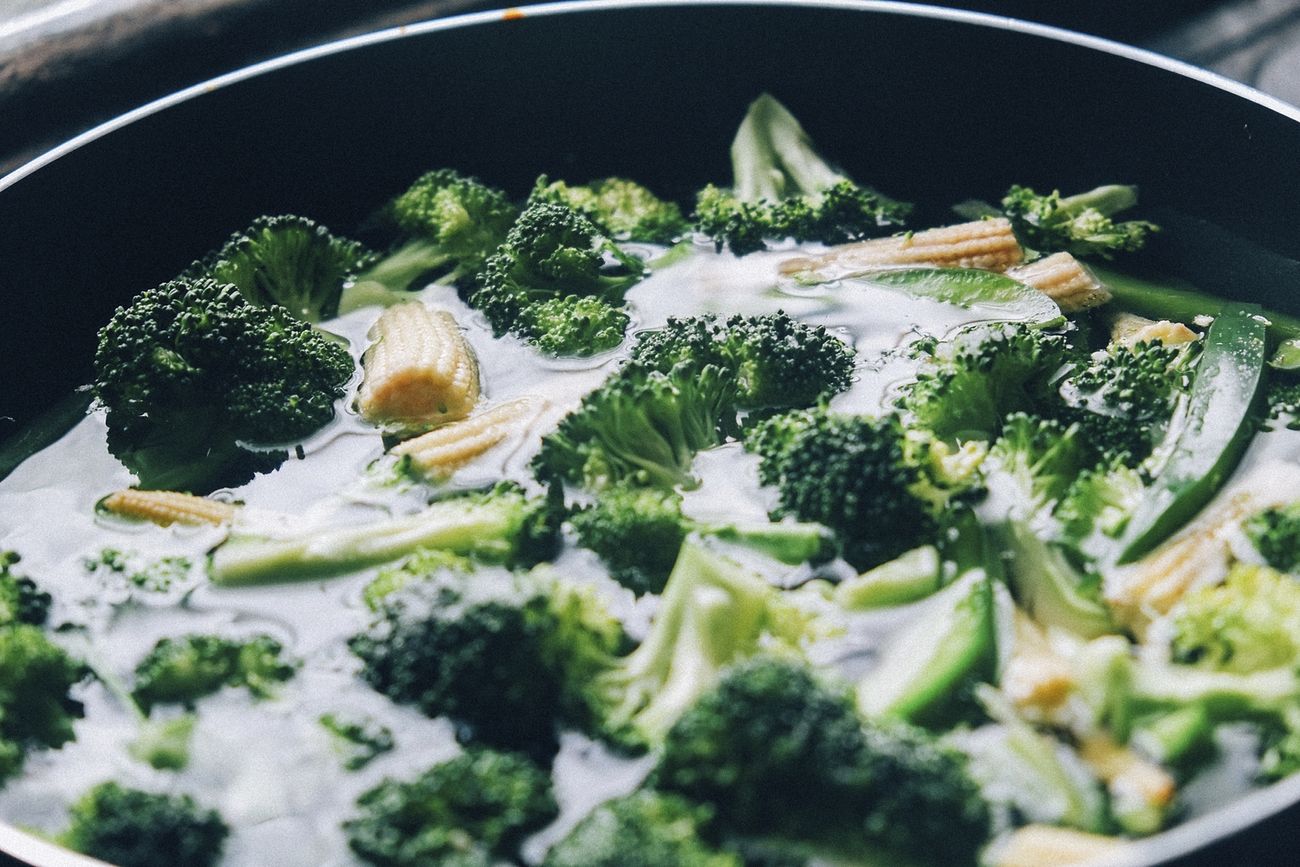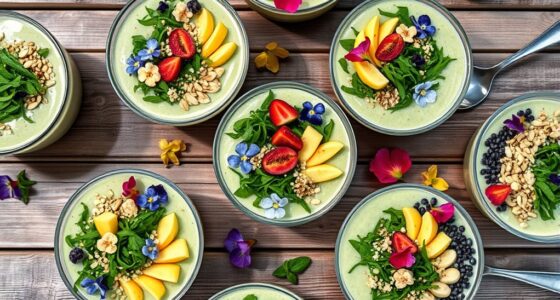Eating raw foods can substantially boost your gut health by providing natural enzymes and beneficial probiotics that aid digestion and nutrient absorption. Raw foods high in fiber act as prebiotics, supporting a diverse and balanced microbiome. Fermented raw foods like sauerkraut and yogurt introduce live probiotics that reduce inflammation and improve gut balance. Continuing to explore this topic will reveal even more simple ways to enhance your digestion and overall wellness.
Key Takeaways
- Raw foods contain natural enzymes that aid in breaking down food for easier digestion.
- Fermented raw foods like sauerkraut and kefir supply beneficial probiotics to support gut flora.
- High fiber content in raw foods acts as prebiotics, promoting a healthy, diverse gut microbiome.
- Consuming raw foods reduces digestive discomfort such as bloating and gas by enhancing enzymatic digestion.
- Incorporating raw and fermented foods boosts immune health and overall gut harmony.

Eating raw foods can considerably boost your gut health and improve digestion because they are rich in natural enzymes and beneficial bacteria. These enzymes are essential because they help break down food more efficiently, leading to better nutrient absorption and less digestive discomfort. When you consume raw fruits, vegetables, and fermented foods, you’re giving your digestive system a natural boost that processed foods often lack. The fermentation benefits of raw foods, in particular, are profound because fermentation enhances the bioavailability of nutrients and introduces probiotics—live beneficial bacteria—that bolster your gut flora. These probiotics outcompete harmful bacteria, reduce inflammation, and support overall digestive harmony. When your gut flora is balanced, you’re less likely to experience bloating, gas, or irregular bowel movements.
Raw foods boost gut health with enzymes and probiotics that enhance digestion and nutrient absorption.
Enzymatic digestion plays a key role here because raw foods contain active enzymes that start breaking down food right in your mouth and continue doing so throughout your digestive tract. Unlike cooked foods, which often lose these enzymes due to heat, raw foods preserve their natural enzymes, allowing for easier and more efficient digestion. This enzymatic process reduces the workload on your pancreas and other digestive organs, making digestion smoother and less taxing. When you eat a diet rich in raw foods, you’re effectively supporting your body’s natural enzymatic processes, which can lead to quicker digestion and less gastrointestinal discomfort. Additionally, incorporating a variety of raw foods can help diversify your gut microbiome, further enhancing digestion and immune function.
Incorporating raw foods into your diet isn’t just about eating fruits and vegetables; it’s also about embracing fermented options like sauerkraut, kimchi, kefir, and yogurt, which are packed with probiotics. These fermented foods are especially beneficial because they undergo natural fermentation processes that create beneficial bacteria, amplifying the fermentation benefits for your gut. By regularly consuming these, you help maintain a healthy balance of gut bacteria, which is essential for digestion, immune function, and even mental health. Plus, raw foods are typically high in fiber, which acts as a prebiotic, feeding the good bacteria in your gut and further enhancing the benefits of fermentation and enzymatic digestion.
Ultimately, making raw foods a staple in your diet supports a thriving, balanced gut environment. This balance not only improves digestion but also boosts your immune system and overall vitality. By prioritizing raw foods, you’re giving your body the tools it needs to digest more effectively, absorb nutrients better, and maintain ideal gut health. Embracing raw foods is a simple yet powerful step toward better digestion, leveraging the natural fermentation benefits and enzymatic digestion that your body needs to thrive. Recognizing the role of gut microbiome in digestion can further motivate you to include more raw, fermented foods in your diet.
Frequently Asked Questions
Can Raw Foods Cause Food Poisoning?
Yes, raw foods can cause food poisoning if they contain foodborne pathogens. You might accidentally ingest bacteria like Salmonella or E. coli through contaminated produce or meats. Cross contamination during handling or improper washing increases this risk. To stay safe, wash raw foods thoroughly, keep raw and cooked items separate, and store them properly. Being cautious helps prevent food poisoning from raw foods and keeps your gut healthy.
Are Raw Foods Suitable for Everyone?
Raw foods aren’t suitable for everyone, especially if you have dietary restrictions or a compromised immune system. While they offer nutritional benefits like vitamins and enzymes, some people may experience digestion issues or risk food poisoning. It’s essential to take into account your health conditions and consult a healthcare professional before incorporating raw foods into your diet. Adjusting intake based on your individual needs ensures you enjoy their benefits safely.
How Do Raw Foods Impact Gut Bacteria Diversity?
Imagine your gut as a bustling city, where diverse microbial diversity keeps everything running smoothly. Eating raw foods rich in dietary fiber acts like planting a variety of seeds, encouraging different beneficial bacteria to thrive. These foods boost microbial diversity, which supports digestion and immune health. Including raw fruits and vegetables regularly helps keep your gut city lively and balanced, making sure all parts work harmoniously together.
What Are the Best Raw Foods for Specific Digestive Issues?
To target specific digestive issues, include fermented raw foods like sauerkraut and kimchi, which offer fermentation benefits and boost beneficial bacteria. For enzyme activation, consume raw pineapple and papaya, as they contain natural enzymes that aid digestion. These foods help alleviate bloating, improve nutrient absorption, and restore gut balance by enhancing enzyme production and supporting a healthy microbiome. Incorporate them into your diet regularly for best results.
How Should Raw Foods Be Stored to Maintain Freshness?
To maintain freshness, you should store raw foods properly by keeping them in the refrigerator at or below 40°F. Use airtight containers or plastic wrap to preserve their moisture and prevent spoilage. Avoid washing produce before storage, as excess moisture promotes decay. For longer storage, consider vacuum sealing. Proper storage and freshness preservation guarantee your raw foods stay nutritious and safe to eat, maximizing their health benefits.
Conclusion
By incorporating raw foods into your diet, you boost your gut health, improve your digestion, and support your overall well-being. Embrace the crunch, enjoy the freshness, and feel the difference each raw bite makes. Prioritize your gut, nourish your body, and strengthen your health with every raw choice you make. Remember, small steps lead to big changes—so start today, stay consistent, and let raw foods transform your digestive wellness for the better.
Ilana has been a vegan for over 10 years. She originally made the switch for health reasons, but soon found herself becoming more and more passionate about the ethical and environmental implications of a vegan lifestyle. Ilana is the author of The Graceful Kitchen, a blog all about veganism. She loves to cook up delicious and nutritious vegan meals, and share her recipes with others who are interested in leading a cruelty-free life. Ilana is also a strong advocate for using whole foods as the foundation of a healthy diet, and believes that going vegan is one of the best ways to achieve this.
